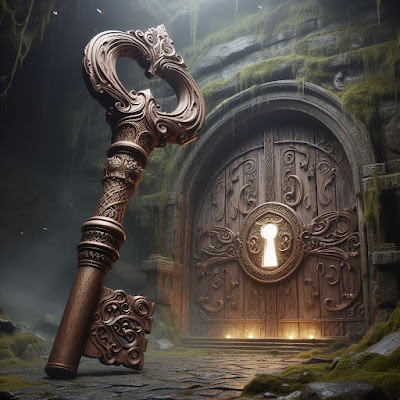 |
| Traditional Publishing (Validation, Expertise) vs Self-Publishing (Control, Higher Royalties) |
So you've written a book! Congratulations! Now comes the exciting (and sometimes daunting) decision of how to get your work out into the world. There are two main paths you can take: traditional publishing or self-publishing. Both have their pros and cons, and the best choice for you will depend on your goals and resources.
A. Traditional Publishing: The Established Route
 |
| Will your work find a home here? Traditional publishing offers prestige and expertise, but competition is fierce. |
Traditional publishing involves finding a publishing house that agrees to take on your book. This can be a lengthy process, but if successful, the publisher will handle most of the work for you, including:
- Editing and Proofreading: Ensuring your manuscript is polished and error-free.
- Book Design and Cover Art: Creating a professional-looking book that will catch readers' eyes.
- Marketing and Distribution: Getting your book into bookstores and online retailers.
The Benefits:
- Validation: Having a traditional publisher behind your book can lend credibility and prestige.
- Expertise: Publishers have the experience and resources to handle the technical aspects of publishing, freeing you to focus on writing.
- Financial Investment: Publishers typically provide an advance on royalties, which can be helpful.
 |
| The heart of traditional publishing: Editors, designers, and marketing teams working together to bring your book to life. |
The Drawbacks:
- Control: You may have less say in the editing process, cover design, and marketing strategy.
- Competition: Getting a traditional publishing deal can be competitive, and it can take a long time to find a publisher who is a good fit for your book.
- Lower Royalties: Traditional publishers typically offer lower royalty rates than self-publishing.
B. Self-Publishing: Charting Your Own Course
 |
| A blend of creativity and technology for complete authorial control. |
With self-publishing, you are in complete control of your book, from start to finish. This means you'll be responsible for everything from editing and formatting to marketing and promotion.
The To-Do List:
- Copyright: Securing the legal rights to your work.
- Editing and Proofreading: Finding freelance editors or using editing software.
- Formatting: Preparing your manuscript for different platforms (e.g., ebook, print).
- Design and Cover Art: Hiring a designer or using design tools to create a professional-looking book.
- Pricing and Distribution: Setting your book's price and making it available for purchase through online retailers and self-publishing platforms.
- Marketing and Promotion: Creating a website, social media presence, and engaging in other marketing activities to reach readers.
The Benefits:
- Control: You have complete creative control over your book, from cover design to marketing strategy.
- Higher Royalties: You keep a higher percentage of the profits from your book sales.
- Faster Time to Publication: You can get your book published much faster than with traditional publishing.
The Drawbacks:
- Investment: You'll need to invest your own time and money in editing, design, marketing, and other publishing services.
- Marketing Expertise: You'll need to learn how to effectively market your book to reach readers.
- Credibility: Self-published books may be perceived as less credible than traditionally published books, although this perception is changing.
C. Choosing the Right Path:
The right path for you will depend on your individual goals and resources. If you value control and a higher potential for royalties, self-publishing may be a good option. However, if you prefer to have a publisher handle the technical aspects and provide marketing expertise, then traditional publishing may be a better fit.
AI Assistance for Authors:
 |
| Unlocking the power of human creativity with AI assistance |
Human + AI Synergy: A sci-fi thriller born from collaboration:
My own experience writing a novel, "Melissa" (a captivating reimagining of a screenplay in the sci-fi and psycho-thriller genres), showcased the power of AI assistance. With the help of several AI tools, including Bard (Gemini), GPT-4, and Sudowrite, I was able to gain vivid prose with better word choices and improved proofreading. |
| Uncover the chilling secrets of Melissa. Will you dare to enter? |






























